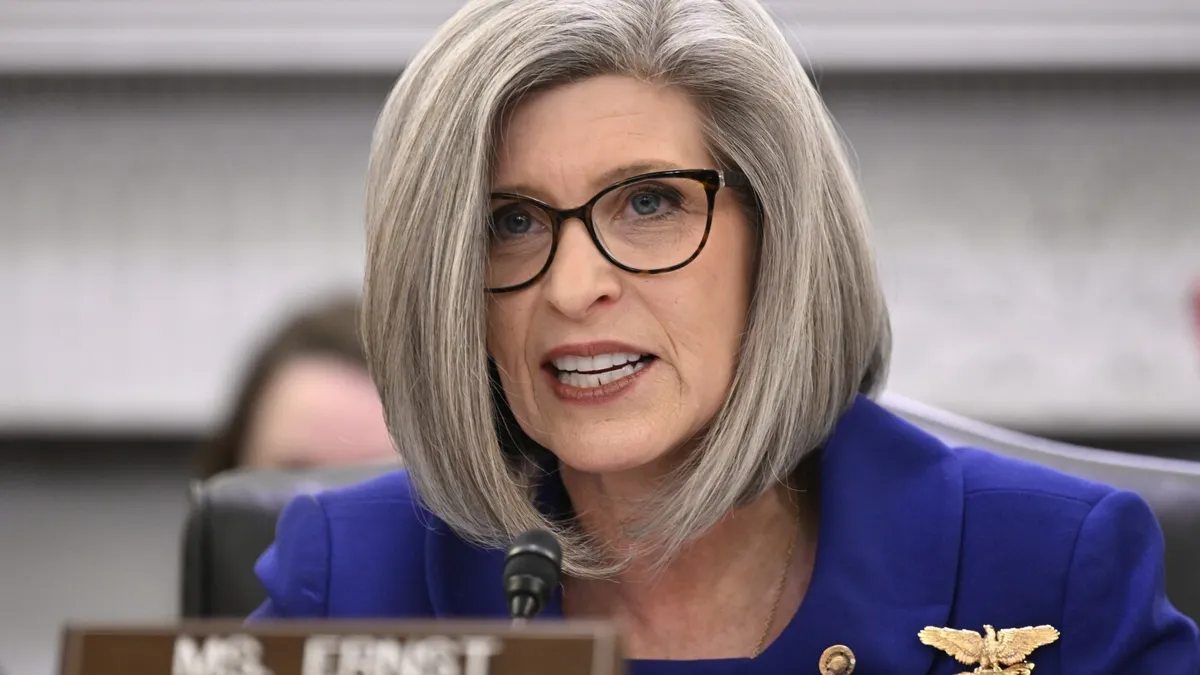
During a town hall meeting in Parkersburg, Iowa on Friday, Republican Senator Joni Ernst encountered significant pushback from constituents when she made a controversial statement regarding Medicaid eligibility. As she discussed potential changes to the program, she remarked, “we all are going to die,” which prompted audible shouts and groans from the audience. This incident underscores the contentious nature of the ongoing debates surrounding health care reform and spending cuts.
Senator Ernst maintained a consistent message throughout the heated forum, defending the newly proposed tax and immigration package that recently passed in the House and is currently under Senate review. In response to constituents expressing concerns about cuts to Medicaid, she justified the $700 billion in reduced spending by arguing that it would help keep undocumented immigrants and those with employer-sponsored insurance off the Medicaid rolls. This rationale, however, did not sit well with many attendees.
Amid the crowd's discontent, one individual shouted that people would die without adequate coverage. Ernst's response, “People are not ... well, we all are going to die,” drew further groans, highlighting the emotional weight of the discussion surrounding health care access.
Despite the backlash, Ernst asserted that her focus would remain on protecting those who meet the eligibility requirements for Medicaid. “What you don’t want to do is listen to me when I say that we are going to focus on those that are most vulnerable,” she stated, aiming to reassure constituents that the most at-risk populations would still receive support.
Last week, House Republicans passed a significant spending and tax cut package, referred to as “the big, beautiful bill,” with the encouragement of President Donald Trump. The legislation moved through the House by a narrow margin and is now headed to the Senate. Ernst emphasized that any legislation that emerges from the Senate would likely differ from the House's version, indicating potential changes in the approach to Medicaid reform.
Republicans have defended the new work requirements for able-bodied adults without dependents, as well as the tightened eligibility verification processes. They argue that these adjustments will generate savings that can be utilized to sustain the Medicaid program for vulnerable populations. However, Democrats have raised alarms that millions of Americans could lose their health care coverage as a result of these changes. A preliminary estimate from the nonpartisan Congressional Budget Office projected that the proposals could lead to a reduction of approximately 8.6 million individuals with health care coverage over the next decade.
Video footage capturing Ernst’s controversial comments quickly circulated among Democratic elected officials and candidates, amplifying the criticism she faced. As she prepares for her reelection bid in 2026, this incident may have implications for her political future. Ken Martin, chair of the Democratic National Committee, issued a statement asserting that Ernst’s comments revealed a lack of concern for constituents’ well-being, framing the situation as indicative of Republican priorities that favor the wealthiest individuals at the expense of everyday Americans.
This town hall incident not only highlights the contentious debate surrounding Medicaid and health care reform but also sets the stage for ongoing discussions as the Senate deliberates on the proposed legislation.